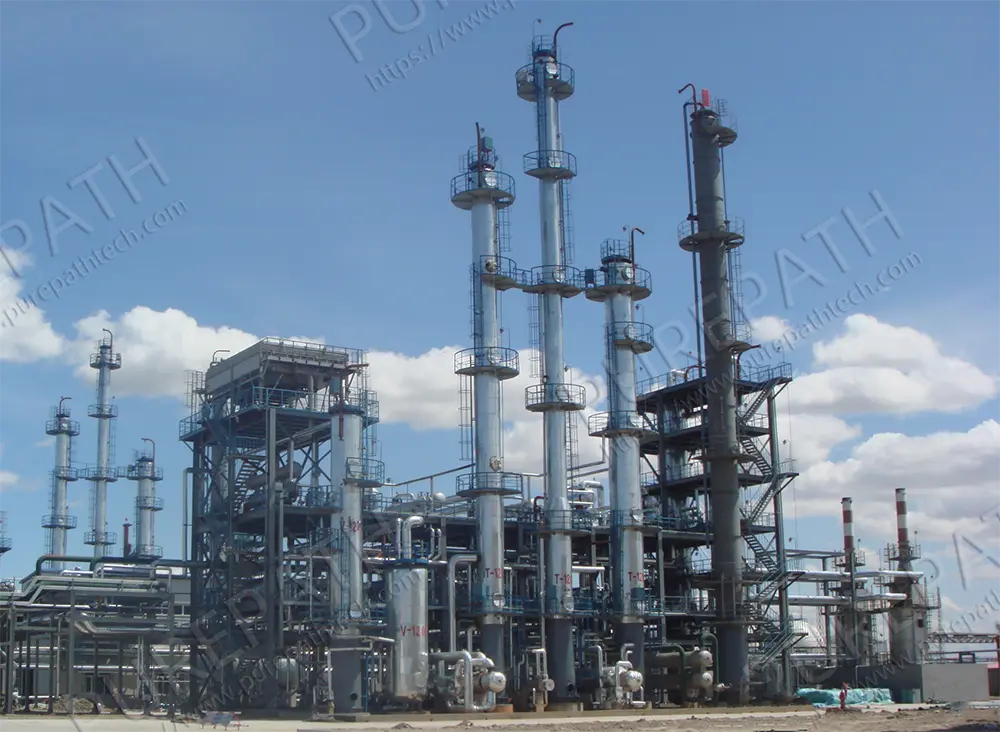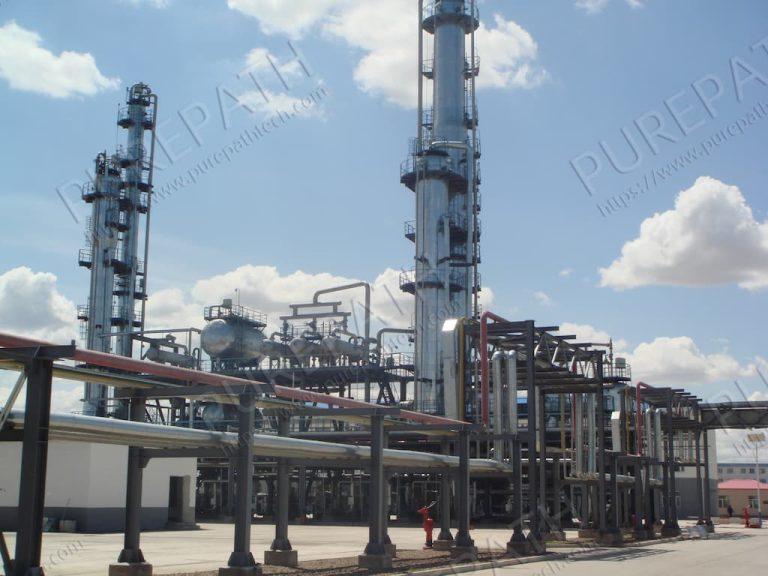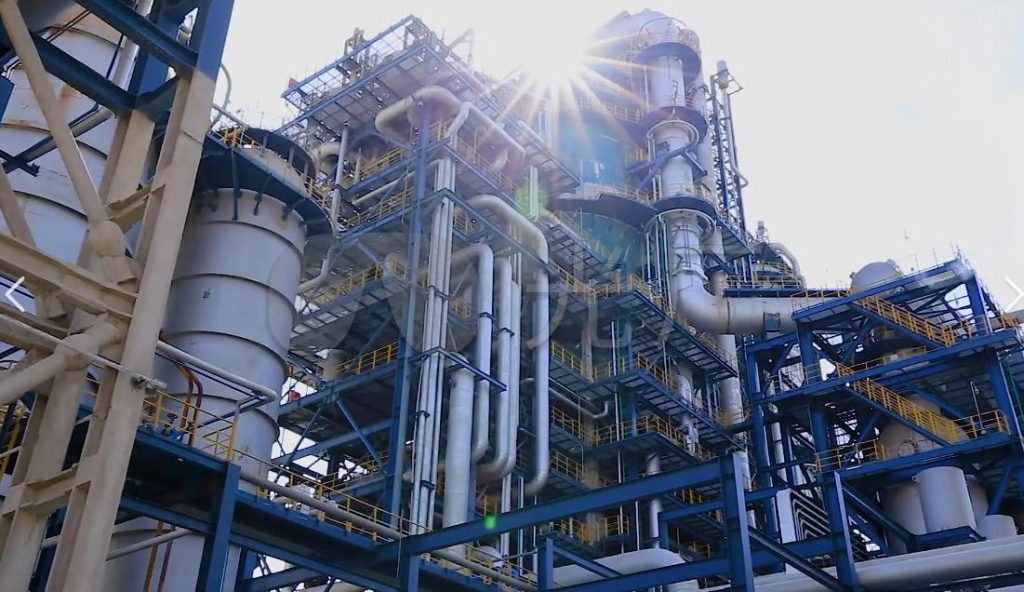Purification of Crude Oil and Its Impact on the Petroleum Refining Industry
Crude oil, often referred to as “black gold,” is a cornerstone of the global energy market. Its raw form is a complex mixture of hydrocarbons and other organic compounds, which vary in composition depending on its origin. However, before crude oil can be transformed into valuable end products such as fuels, lubricants, and petrochemicals, it must undergo a crucial process known as purification. This article delves into the intricacies of crude oil purification, exploring the processes involved, the types of impurities removed, and the significance of this purification in the petroleum refining industry.

What is Crude Oil Purification?
Crude oil purification refers to the physical and chemical processes employed to remove impurities from crude oil. These impurities include water, salts, asphaltenes, sulfur compounds, nitrogen compounds, oxygen compounds, and various metallic impurities. The goal of purification is to enhance the quality and stability of crude oil, making it suitable for refining and chemical processing.
Purification is not merely about cleaning the oil; it involves altering the chemical composition of crude oil to meet the stringent requirements of refining processes. The purified crude oil ensures smoother refining operations, reduces wear and tear on equipment, and improves the overall efficiency of the refining process. Moreover, the development of advanced crude oil purification technologies plays a vital role in enhancing the comprehensive utilization efficiency of crude oil while minimizing environmental pollution.
What Impurities Need to be Removed in Crude Oil Purification?
Crude oil, in its natural state, contains a variety of impurities that must be removed to prevent damage to refining equipment, ensure product quality, and reduce environmental impact. The most common impurities in crude oil include:
| Impurity Type | Description | Impact | Removal Importance |
| Sulfur Compounds | Highly corrosive; produce sulfur dioxide (SO₂) and sulfur trioxide (SO₃) when burned. | Contributes to acid rain, damaging ecosystems, human health, and infrastructure. | Essential for environmental protection and equipment longevity. |
| Oxygen Compounds | Often acidic, causing corrosion in refining equipment. | Destabilizes petroleum products and leads to corrosion. | Critical for maintaining refining process integrity and high-quality end products. |
| Nitrogen Compounds | Typically alkaline, causing catalyst poisoning during refining. | Reduces catalyst efficiency, increases operational costs. | Key for preserving catalyst activity and refining efficiency. |
| Metallic Impurities | Includes metals like arsenic, nickel, and vanadium. | Reduces catalyst efficiency, and increases operational costs. | Crucial for refining efficiency and environmental safety. |
| Water Content | Harmful to refining catalysts, increases maintenance costs, and poses environmental and health risks. | Forms emulsions, complicating refining processes. | Effective dehydration is critical for product quality and refining stability. |
| Mechanical Impurities | Includes plant fibers, debris, and solid particles. | Causes blockages and damage to refining equipment. | Important for ensuring smooth operation and extending machinery lifespan. |
| Colloidal Impurities | Includes phospholipids, proteins, and sugars. | Accelerates oxidation and degradation of oil products. | Removed to stabilize oil and improve shelf life. |
| Fatty Impurities | Includes free fatty acids, pigments, and waxes. | Undesirable in petroleum products, affects appearance and performance. | Removed through chemical refining to enhance final product quality. |
| Other Impurities | Includes pesticide residues and trace metals. | Toxic, posing significant risks to health and the environment. | Advanced techniques are essential for ensuring safety and product quality. |
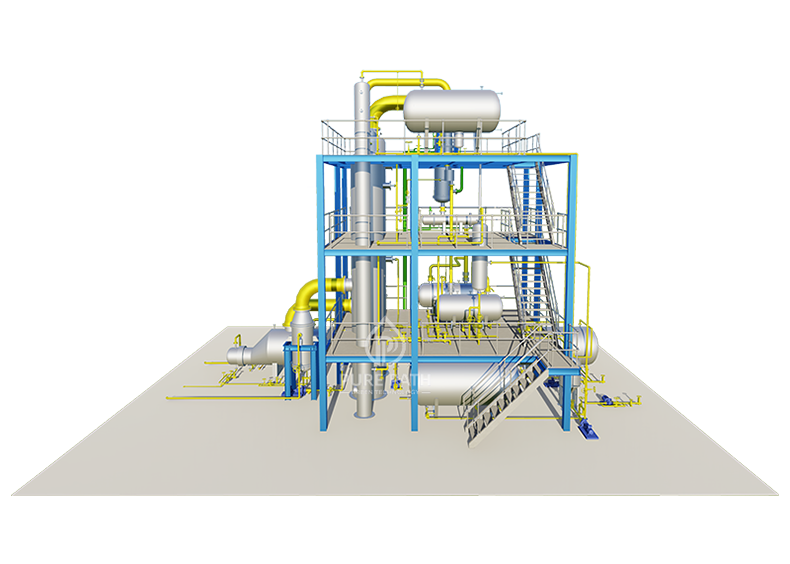
What are the Common Crude Oil Purification Processes?
The purification of crude oil involves a variety of processes, each tailored to remove specific impurities and improve the overall quality of the oil. Some of the most commonly used purification processes include:
| Purification Processes | Description | Key Features |
| Electrical Dehydration Process | Uses electric fields to coalesce and settle water droplets in crude oil. | 1. Highly effective for initial water removal; 2. Utilizes electrostatic forces for efficient separation. |
| Thermochemical Dehydration Process | Involves heating crude oil to separate oil and water based on density differences. | 1. Effective for high water content crude oil; 2. Vaporizes water for stable, dehydrated oil. |
| Molecular Sieve Dehydration Process | Employs molecular sieves to adsorb water molecules from crude oil. | 1. Highly efficient; 2. Selectively captures water, ideal for situations requiring high dehydration levels. |
| Microwave Radiation Dehydration Process | Utilizes microwave energy to break emulsions and remove water. | 1. Known for short processing time and low energy consumption; 2. Effective in crude oil purification. |
| Microbial Dehydration Process | Uses microorganisms to break emulsions and dehydrate crude oil. | 1. Environmentally friendly; 2. Lowers chemical use, costs, and environmental impact. |
| Three-Phase Separation Process | Combines electrical dehydration with mechanical separation for oil, water, and gas separation. | 1. Integrated approach for thorough purification; 2. Used in large-scale operations. |
| Crude Oil Stabilization Process | Involves heating and flashing to stabilize light fractions of crude oil. | 1. Reduces evaporation losses during storage and transportation; 2. Enhances crude oil utilization. |
| Catalytic Cracking Process | Converts heavy crude oil into lighter hydrocarbons like gasoline and diesel. | 1. Increases yield of high-demand products, adding value to crude oil; 2. Critical in the refining process. |
Types of End Products from Purified Crude Oil
Once crude oil has been purified, it can be refined into a wide range of end products, each serving different industries and applications. The primary categories of crude oil end products include:
| End Product Category | Description | Key Applications |
| Fuels | Largest portion of crude oil products, including gasoline, diesel, jet fuel, kerosene, and fuel oil. | Transportation (vehicles, aviation) Industrial operations Household energy |
| Lubricants and Greases | Reduce friction and wear in mechanical systems; includes engine oil, hydraulic oil, and gear oil. | Vehicles Machinery Industrial equipment maintenance |
| Waxes, Asphalt, and Petroleum Coke | Waxes for candles, insulation, and packaging; asphalt for road construction; petroleum coke for electrode production. | Construction Electrical insulation Packaging Industrial production |
| Petrochemical Products | Derived from chemical processing of crude oil; includes ethylene, propylene, and aromatics. | Production of plastics Synthetic rubber Fibers Solvents Fertilizers |
| Gaseous Products | Byproducts such as propane and butane from crude oil refining. | Heating Cooking Industrial processes Chemical production feedstocks |
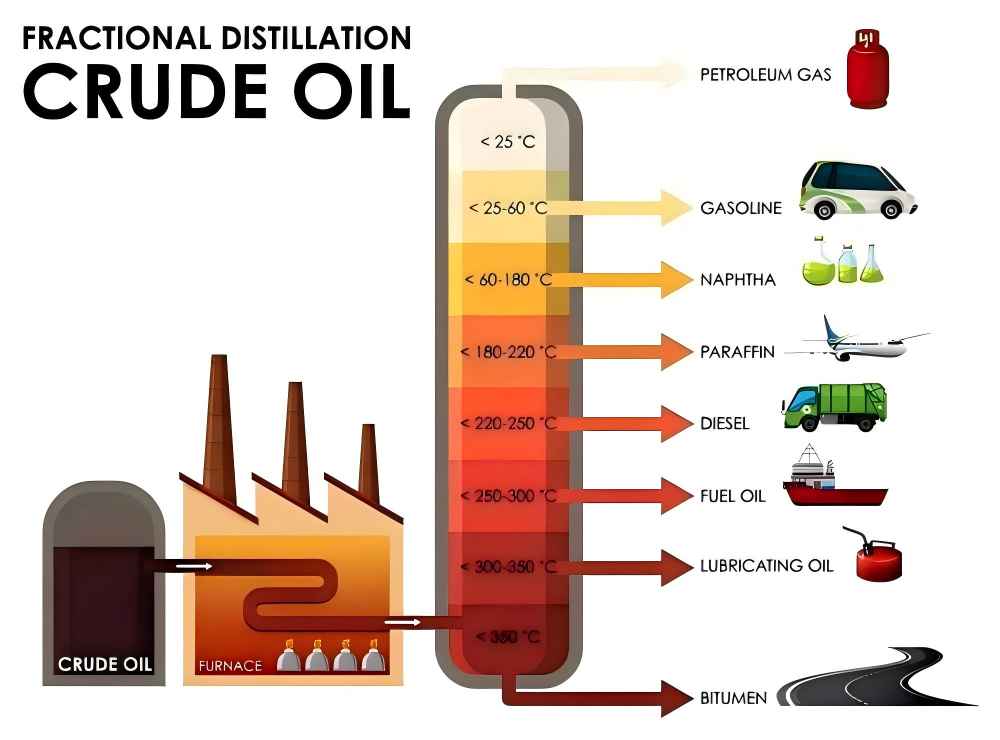
The Role of Crude Oil Purification in the Petroleum Refining Industry
Crude oil purification plays a pivotal role in the petroleum refining industry by ensuring that the raw material fed into the refining process is of the highest possible quality. Purification enhances refining efficiency, reduces operational costs, and extends the lifespan of refining equipment by minimizing the presence of harmful impurities.
Moreover, the development of advanced purification technologies has led to significant environmental benefits. By removing sulfur, nitrogen, and other pollutants from crude oil, refineries can produce cleaner fuels and reduce emissions, contributing to a more sustainable energy future.
Technological advancements in crude oil purification, such as the use of molecular sieves, microwave radiation, and microbial methods, have also improved the overall efficiency and effectiveness of the purification process. These innovations have enabled refineries to meet increasingly stringent environmental regulations while maximizing the yield of valuable end products.
In summary, crude oil purification is a critical step in the petroleum refining process, ensuring that crude oil is of the necessary quality for efficient and effective refining. By removing impurities such as sulfur, nitrogen, metals, and water, purification processes protect refining equipment, enhance product quality, and contribute to environmental sustainability.


